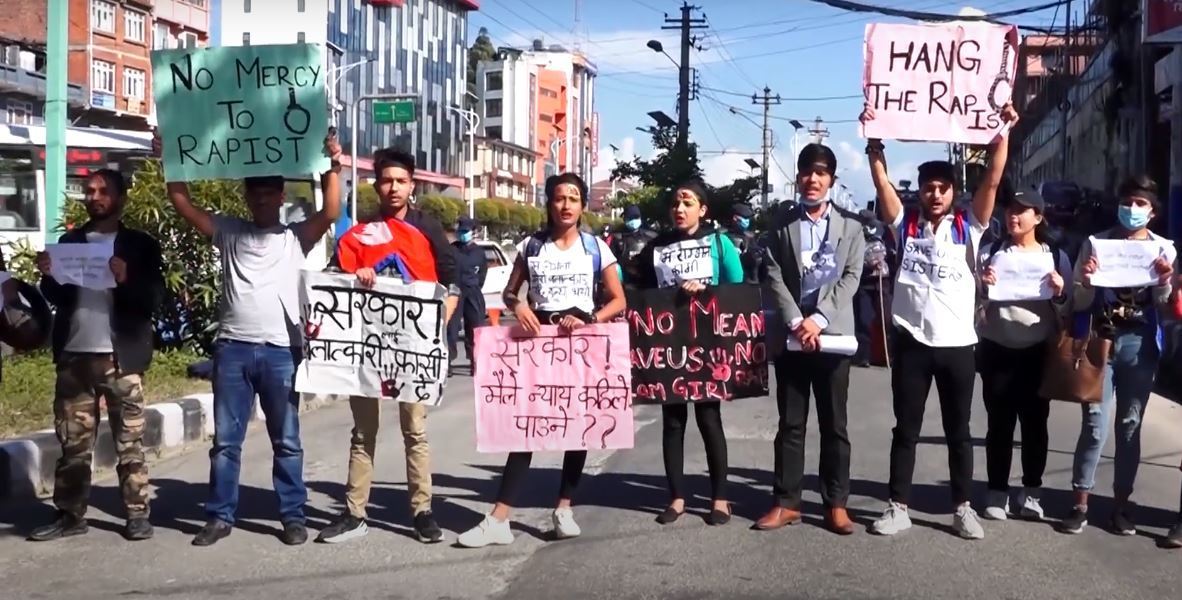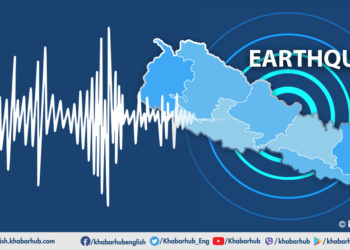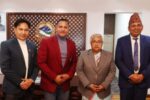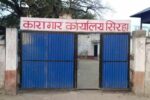KATHMANDU: A few days ago, the senior leader of the Janata Samajwadi Party (JSP) and former Prime Minister Dr. Baburam Bhattarai took to Twitter demanding the death penalty to the perpetrators of rape.
Dr. Bhattarai’s tweet came in the context of the murder after the rape of 12-year-old Samjhana BK of Bajhang.
She was found dead near a local temple on September 22 about half an hour away from home.
Police, meanwhile, arrested a person on suspicion of being involved in the crime. Based on the statement of the arrested person and other evidence, the police investigation team has concluded that the girl was killed after rape.
Dr. Bhattarai has also mentioned the murders of Namita and Sunita in Pokhara during the Panchayat period, Nirmala Pant in Kanchanpur about two years ago, and the latest case of Samjhana this year.
He tweeted: “Our state has been found guilty in the rape/murder case of Namita/Sunita during the monarchy period, and Nirmala Pant-Samjhana BK of the republican period. Now let’s do this: 1. Criminal non-arrest – action against the responsible official for not handling the case properly. Separate benches set up in 2 courts, 3 criminals sentenced to death!”
राजतन्त्र कालका नमिता-सुनितादेखि गणतन्त्र कालका निर्मला पन्त-सम्झना विकसम्मको बलात्कार-हत्या प्रकरणमा हाम्रो राज्य नै दोषी रहेको पुष्टी भैसक्यो।अब यसो गरौं:१.अपराधी नपक्रने/मुद्दा ठीक नलगाउने जिम्मेदार पदाधिकारीलाई कार्वाही;२.अदालतमा छुट्टै बेन्चको स्थापना;३.अपराधीलाई मृत्युदण्ड!
— Baburam Bhattarai (@brb1954) September 27, 2020
Section 3 of the Constitution of Nepal talks about the fundamental rights and duties of the citizens. This section begins with Section 16, and Clause 2 of the same article states, “No law shall be enacted in such a way as to impose the death penalty on anyone.”
It should be noted that Dr. Bhattarai was the Chairperson of the Constitutional Political Dialogue and Consensus Committee in the second Constituent Assembly.
He was instrumental in reaching a consensus on the constitution.
Since the constitution itself prohibits the enactment of laws that provide for the death penalty, there is no ruling on the death penalty for any crime in Nepal.
Nepal has made an international commitment not to enact a law on the death penalty.
Nepal is also a party to 24 international human rights conventions to date.
Article 9 of the Nepal Treaty Act, 2047 states, “If any treaty in favor of the Government of Nepal conflicts with the prevailing law, the prevailing law shall be invalid to the extent of the conflict for the treaty and the provisions of the treaty shall apply in accordance with Nepali law.”
Of these, the Declaration on Civil and Political Rights, adopted on December 16, 1966, was ratified by Nepal on May 4, 1991.
Subsequently, on 4 June 1998, Nepal ratified the Voluntary Declaration on the Pledge of Civil and Political Rights, passed on 15 December 1989 to abolish the death penalty.
According to human rights activist Charan Prasai, advocating the death penalty by a politician who has become the country’s Prime Minister in a democratic system is an expression against human rights.
He said, “On the one hand, if the death penalty is to be introduced, it will attract everyone. They (the former Maoists) must also remember the events of the war they have waged for ten years.”
Some of the laws of the Panchayat System under the direct rule of the king provided for the death penalty. After the restoration of the multi-party system, the Constitution of 1991 had made a provision not to make a law on the death penalty. Under the fundamental right of the constitution, the “right to liberty” stated that “no person shall be deprived of his liberty except in accordance with the law, and no law shall be enacted to impose the death penalty.”
After the enactment of the 1991 constitution, the provision of the death penalty in some laws related to the Panchayat rule was repealed by an order of the Supreme Court.
The Interim Constitution 2063 also stated that under the fundamental right to freedom, “Every person shall have the right to live with dignity and no law shall be enacted to impose the death penalty.”
After the peace process, the Interim Constitution was promulgated with the participation of the then CPN-Maoist party.
As a result of such international commitments, there is a provision in the Constitution of Nepal not to legislate on the death penalty.
According to experts, Nepal should back away from its international commitment to the right to the death penalty.
Then, the constitution should be amended.
According to human rights activist Prasai, if Nepal is to enact the death penalty law, it must be decided by the Federal Council of Ministers, passed by the federal parliament, and a petition must be filed with the United Nations to withdraw from international commitments.
If accepted by the international community through the United Nations, Nepal can amend the constitution to make a law on the death penalty.
But, on the one hand, doing so is not an easy task. On the other hand, it will be a retrograde move and will weaken Nepal’s credibility in the international community.
Many countries around the world have abolished the death penalty, but still, about 60 percent of the world’s population lives in countries with the death penalty.
China, India, Pakistan, Bangladesh, Indonesia, and most of the Islamic countries in Asia with large populations have the death penalty. Twenty-eight of the 50 states in the United States have the death penalty.
These countries carry the death penalty for crimes such as murder, mass murder, genocide, rape, child sexual abuse, terrorism, treason, hijacking, hijacking and hijacking, drug trafficking and trafficking, war crimes, crimes against humanity, espionage against the state.
In Nepal, too, there is a demand for the death penalty in cases of rape. Especially after the incident of rape and murder of 13-year-old Nirmala Pant in Kanchanpur two years ago, there has been a demand for the death penalty.
A meeting of 32 women parliamentarians in the federal parliament on Monday, meanwhile, demanded the introduction of a law that provides for the death penalty for rape.
They have also formed a nine-member committee under the coordination of Nepal Communist Party (NCP) lawmaker Binda Pandey to study the issue.









Comment